News
-
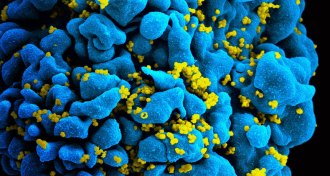 Health & Medicine
Health & MedicineBy ganging up, HIV antibodies may defeat the virus
A duo or trio of powerful antibodies was effective at stopping an HIV-like infection in lab monkeys, two studies find.
-
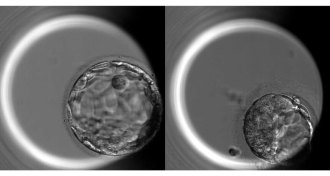 Genetics
GeneticsIn a first, human embryos edited to explore gene function
In groundbreaking research, CRISPR/Cas9 used to study human development for the first time.
-
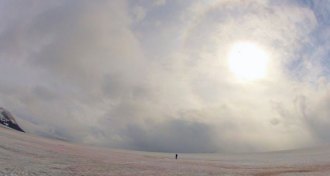 Microbes
MicrobesNow we know how much glacial melting ‘watermelon snow’ can cause
Algae that give snow a red tint are making glacial snow in Alaska melt faster.
-
 Quantum Physics
Quantum PhysicsA new test of water ripples supports the idea of quantum heat in a vacuum
Water waves bolster theory that accelerating space travelers really feel the heat.
-
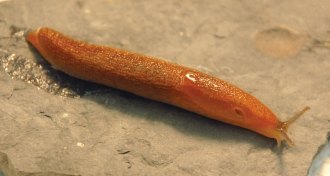 Animals
AnimalsAnimal goo inspires better glue
Researchers are turning to nature to create adhesives that work in the wet environment of the human body.
-
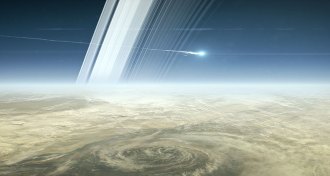 Astronomy
AstronomyR.I.P. Cassini
After 20 years, nearly 300 orbits and pioneering discoveries, the Cassini spacecraft plunges to its death in Saturn’s atmosphere — taking data until its very last breath.
-
 Physics
PhysicsHow to peel permanent marker off glass
Water’s surface tension can peel a thin hydrophobic film such as permanent ink off glass surfaces.
-
 Anthropology
AnthropologySkeleton ignites debate over whether women were Viking warriors
Scientists spar over a 10th century woman who may have had serious fight in her.
By Bruce Bower -
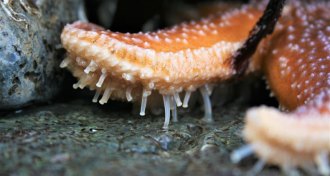 Paleontology
PaleontologyLike sea stars, ancient echinoderms nibbled with tiny tube feet
An ancient echinoderm fossil preserves evidence of tube feet like those found on today’s sea stars.
-
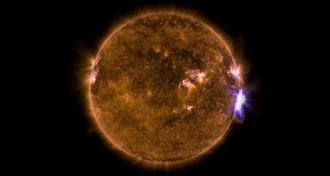 Astronomy
AstronomyThe sun’s strongest flare in 11 years might help explain a solar paradox
The sun tends to release its biggest flares at the ends of solar cycles — and we might finally be able to test why.
-
 Psychology
PsychologyScience can’t forecast love
Scientists’ forecast for romantic matches is unpredictable.
By Bruce Bower -
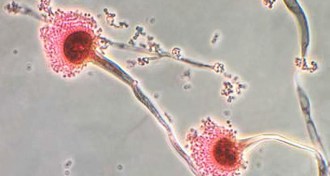 Life
LifeWhen a fungus invades the lungs, immune cells can tell it to self-destruct
Immune system resists fungal infection by directing spores to their death.